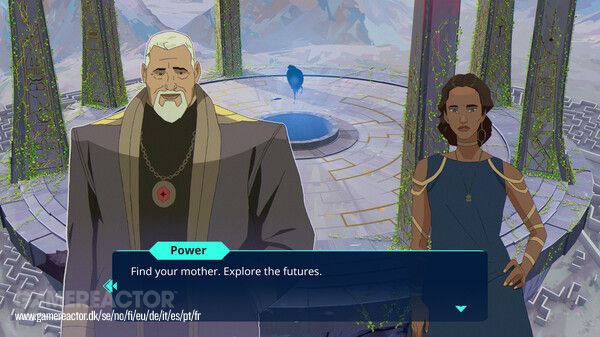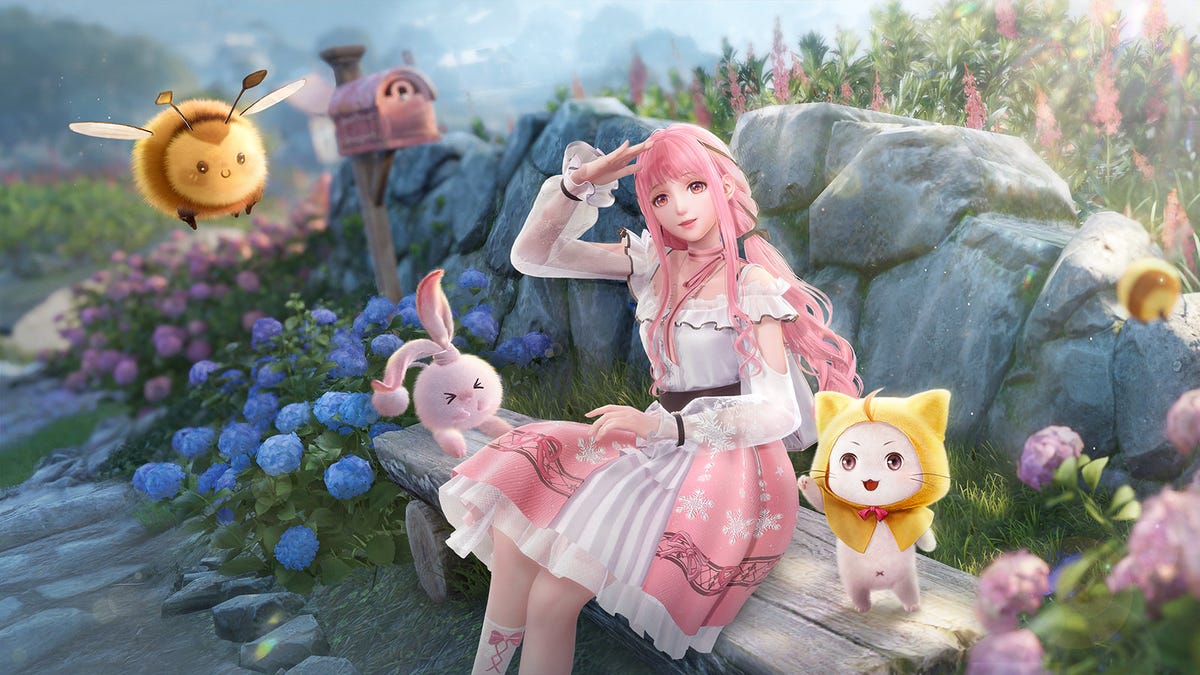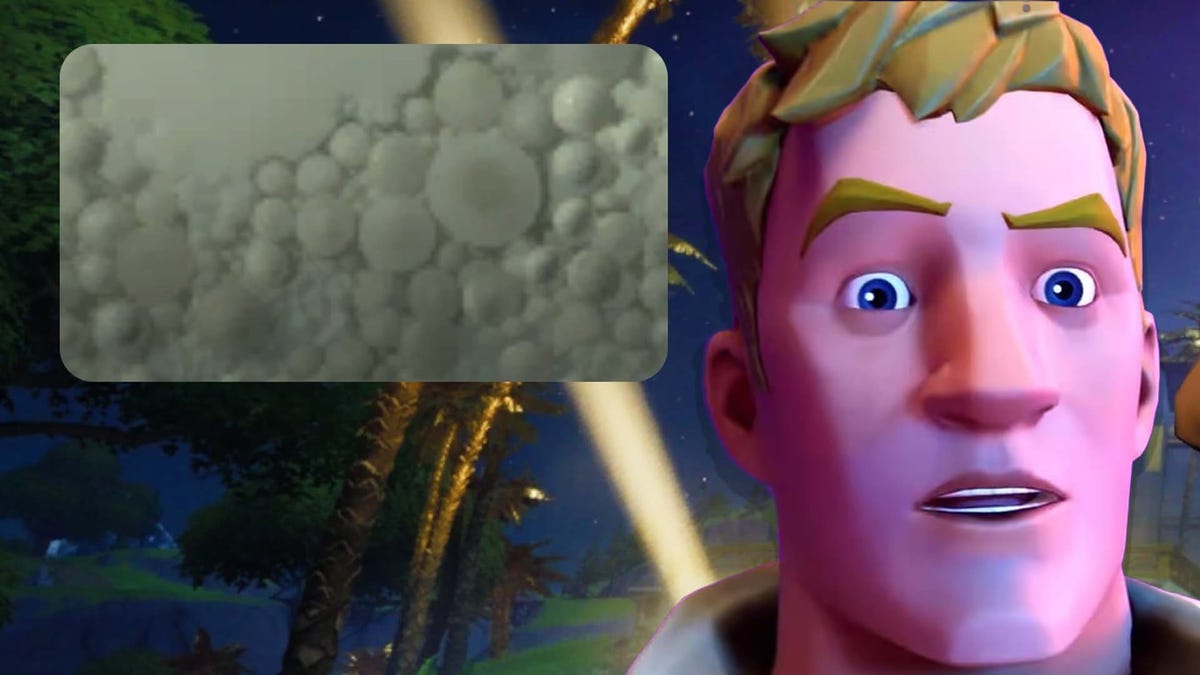Don’t Nod is already a formidable force in the narrative adventure genre. His track record includes visually stunning and deeply emotional immersive experiences that are dear to many gamers, such as Tell me Why or the critically acclaimed Life is Strange. The French indie developer continues this trend with the release of Harmony: The Fall of Reverie, a vivid and colorful visual novel that offers the player the opportunity to shape their own destiny by making meaningful choices that lead to different endings to lead.
The story takes place in the near future when Polly returns to her hometown of Atina after her mother’s disappearance. She quickly realizes that things aren’t as she remembered them as the MK mega-corporation slowly increases its hold on her community. He also stumbles upon another kingdom, Reverie, and discovers that she is the oracle charged with saving both worlds and deciding the fate of all, choosing from the six aspirations residing there who will rule next: joy, power , Bonding, Truth, Chaos , and Glory. . Aspirations are divine beings that inhabit Reverie and affect people’s hopes and dreams, each in their own unique way (just as the name suggests).
To help both worlds, Polly (or Harmony, as the summoners call her) enlists the help of the Augural, a psychic ability that helps her see the different paths that await her in the future should she make certain choices should meet. The Augural is represented as an intricate tree made up of nodes that allow the player to see the connections between them and determine the direction in which the conversations should be taken in order to achieve the desired results. It seems quite simple, but the truth is that there are some nodes that disappear forever once you choose a certain path, others that you have to unlock by getting enough money from a certain objective, or some that you must play and may cause you to deviate from the path you want.
Advertising:
Although it may seem confusing at first, the game offers several tools to help the player quickly understand all the concepts and fully immerse themselves in the story. First, there’s the Codex, a comprehensive encyclopedia with detailed information on every character, location, and mythological aspect of the story. This codex is a fantastic world building tool and will appeal to those who appreciate the lore side of storytelling adventures. Second, there is a very simple tutorial that introduces the player to Augural’s gameplay, gradually revealing the different node types available and the way choices are connected.
While this is a purely narrative adventure based on dialogue reading and detailed, sensual descriptions of events in text boxes, Augural offers more freedom and engages the player directly in the story, creating immersive gameplay that keeps you on your toes and grabs your attention. Depending on the destination you want to pursue, there are different routes to choose from. Each of these routes is unlocked by accumulating enough of the required currency, which is then stored in an additional, maze-like interface that allows you to keep track of your choices. . In a way that’s a bit reminiscent of classic mobile dating sims, you can unlock different endings depending on which aspiration path you’ve chosen.
While the game encourages you to choose the destination you like best or explore different options, I would suggest that it’s best to pick a route and stick to it as best you can to make sure that you hit the right amount of money . is needed to unlock the desired ending. Personally, I’ve played four different routes to test the effects of options (more on that later): Bliss, Glory, Bond, and a fourth route that resulted from not buying enough currency from anyone. While this ending is beautiful and entertaining to read, it can be disappointing to miss out on what you really wanted just because of some chapters you tried to uncover interesting parts of the story instead of systematically following the choices that you made one would lead to the desired coin. So if you don’t really care about the outcome, I recommend picking an aspiration and following their desires throughout the story.
Advertising:
As for the options, they seemed meaningless at first, as if the game relied too heavily on clairvoyance as a storytelling device. It can be weird when the options are, “Tell your sister she’s right” or “Tell her she’s wrong,” and the protagonist then concludes that “her power is affecting her relationships,” though it is is actually a normal conversation they should be having anyway of Polly’s ability to see into the future. The main events and revelations of the game don’t seem to change even when completely opposite paths are taken: somehow the results always seem to be quite similar, sometimes even with dialogues being repeated in two different paths. However, certain routes allow the player to delve into some of Polly’s relationships and better understand her connections to specific characters. As the game progresses, the paths diverge more and more, and in the later chapters the end results vary significantly depending on the objective chosen. However, some parts of the narrative can feel a bit weak due to inconsistencies or instances where the plot would make more sense on some tracks than others.
Of particular note is the striking character design and vibrant art style, resulting from an innovative combination of sci-fi elements and a colourful, dreamlike aesthetic imbued with the timeless charm of a Mediterranean city. Each character has their own unique personality, brought to life through their 2D animated figures and exceptional voice acting, which I think is one of the game’s most outstanding features. The smooth character animations and the wonderful animated cutscenes that occur at certain points in the story add a really nice touch to an otherwise 2D adventure.
More importantly, this is an emotionally charged grief story that delves into important issues like loss, sexual and gender identity, and depression from an incredibly moving and insightful perspective. Without spoiling the spoilers, using the Augural UI to accurately portray a depressive episode is extraordinarily original and candid. It can be triggering for some players, but the game contains a warning at the beginning. It also offers a rich portrayal of race, gender identity, and sexual orientation, and explores modern themes such as the harmful effects of capitalism, open relationships, and the use of alternative pronouns. Above all, it is a found family story that emphasizes the importance of a sense of community.
However, one of the main flaws of this game is the lack of features that facilitate replays. It is natural that after reaching an ending, the player is interested in unlocking the rest or discovering any secrets that may have been lost along the blocked paths. Unfortunately, there is no way to skip tutorials or already played nodes. Therefore, most of the scenarios and conversations have to be repeated, which can become tedious and monotonous, especially when one wants to change path immediately after completing the previous game.












